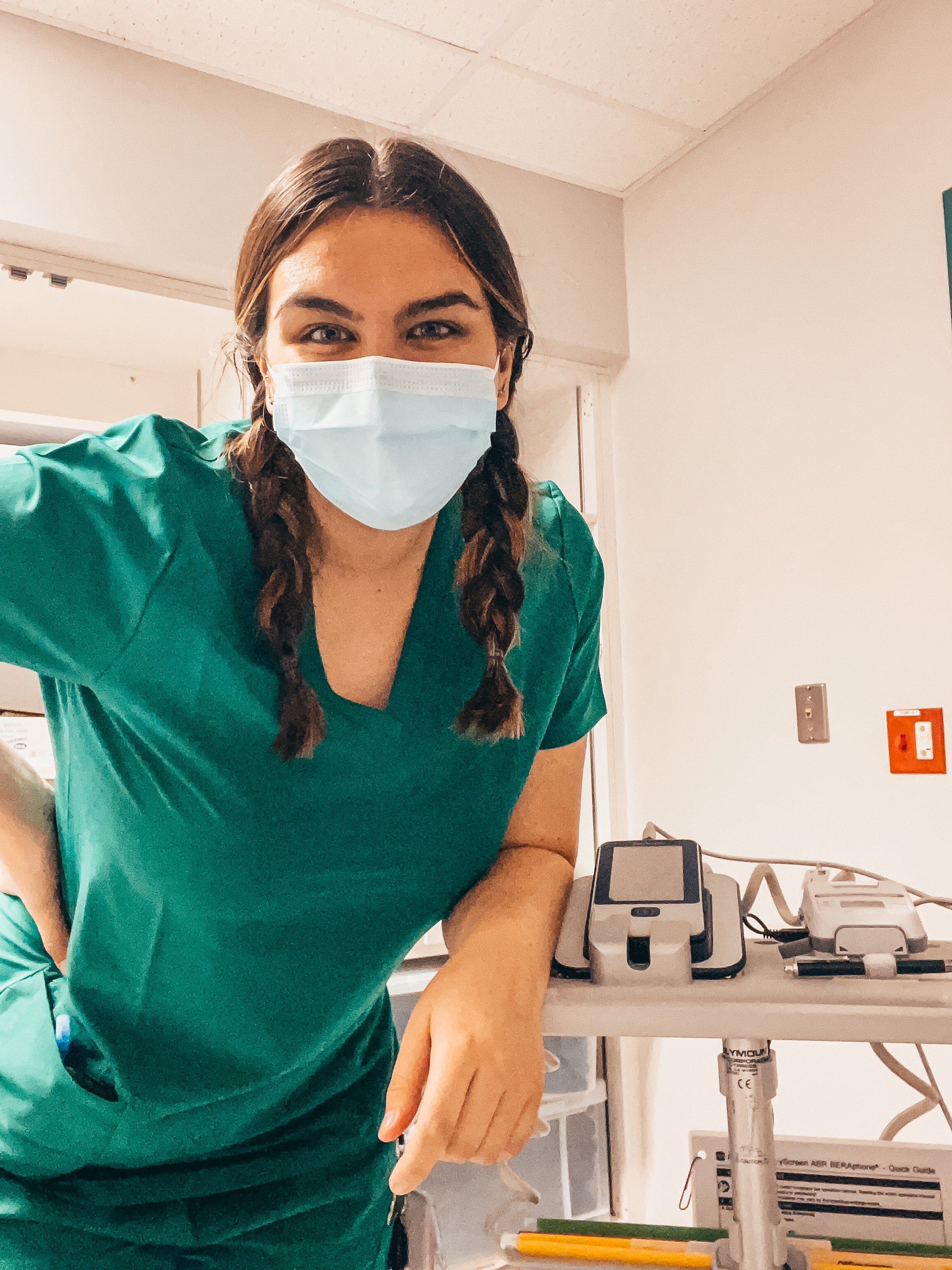
An Interview with Tyler Bedley, Student Nurse and #Gales4Nurses Grand Prize Winner
YOU'VE HEARD TYLER'S STORY, BUT NOW YOU'LL GET TO KNOW HER ON A MORE PERSONAL LEVEL. MEET TYLER BEDLEY: PCT AND STUDENT NURSE.
What is your current title?
Tyler: I am currently a PCT in the NICU.
And how many years of experience do you have?
T: I was a CNA in memory care for about 6 months, then this PCT position in the NICU for 6 months, so overall about a year.
What shift do you work?
T: The night shift.
How do you like that?
T: I actually have grown to love it, I thought I wasn’t going to like it. After this interview I’m actually going to bed.
Well I’ll try not to keep you up too late. You’re still in school right?
T: Yes.
What year are you?
T: I’m a first year nursing student, but I’m a junior technically.
One more year left then. Are you excited to graduate?
T: Yes. I’m excited to be done. I’m only doing 22 months in the nursing program itself, so it’s a pretty accelerated program. The first 2 years were all prerequisites.
What is your favorite part about nursing school?
T: In general, the hands-on experience. Especially during Covid, there isn’t a lot of opportunities to go out there and practice, but being able to do the hands-on with my classmates and mannequins makes a huge difference in the learning process.
What is your least favorite part about nursing school?
T: I’d say time management is really difficult. I wake up and go straight to school. My class is from 5-10pm, then I work the night shift. I have another class in the morning, then I go to bed. Then I wake up and do it all over again.
Oh my gosh, how many hours of sleep do you get?
T: I get about 5 hours of sleep right now. So, yeah, it’s hard to balance the time I get for myself. I also want to see my friends and I want to see my boyfriend.
You definitely need to take care of yourself to be able to take care of your patients.
T: Exactly.
What is your favorite part of your job?
T: Being able to make a difference. When you work in the NICU, specifically as a PCT, there's a lot of babies that are either drug babies or they’ve been abandoned and are going into the system. There are also some with your typically nuclear family, of course. But, a lot of the babies that I work with can fit in the palm of your hand and are on life support. Being able to hold them and let them know they’re loved, giving them that touch that they need to grow and develop, just being there for them and making a difference emotionally is a huge thing for me.
Are there a lot of them that the parents are not allowed to hold?
T: It’s not that they’re not allowed, it’s that they don’t show up.
That is so sad.
T: I know. I didn’t think that was a thing. If my baby was in the NICU I’d be there 24/7. We are available 24 hours for the parents to visit, but it’s usually not until the parents that do show up are getting ready to go home that they want to hold them. As a parent it’s overwhelming. You go in there and they’re connected to wires, they have all of these tubes and systems going on.
What is your least favorite part of your job in the NICU?
T: When a baby passes, because that does happen, and it’s heartbreaking. Sometimes they’re ready to go home and the next thing you know they’re tanking and back in the ICU. It’s very discouraging too, because you tried so hard to keep that baby alive and give it the best start possible. It’s depressing, and not something a lot of people like to talk about, but I think it’s important that people understand that it does happen. You don’t just work in the NICU to work with the tiny little babies, you work in the NICU because you’re there for all aspects of that baby’s life, good and bad. Babies are going to pass, parents are going to pass. When it comes to infant passings, the entire building can feel the emotions those parents have if they’re there. It’s a loss, and there’s not much happiness surrounding death, especially as an infant who didn’t get to live a long life. I also worked in memory care for a while and most of the time the deaths of those individuals were more on the uplifting side. They’d say you know I lived a happy long life, I did everything I wanted to do, I’m ready for this. But as an infant they can’t say that.
What does a typical day, well night, at work look like for you?
T: When I get there I get into a huddle with all of my other PCTs. We talk about whether or not there was an admit or discharge. Overall, what happened during the shift before. Whether we have travel or floats on the floor so we can focus on helping them out a little bit more. From there we start feedings. Our feedings are usually at midnight, 3am and 6am. So we start that midnight feeding, see if any nurses need help getting the bottle ready, whether or not they need their vitals checked and diaper changed which we usually do at every feeding. Then they get swaddled up and fed by the nurse and we move on to the next baby. Usually we each do 3 or 4 per round. After that we start doing hearing screenings on the infants that are ready to be discharged. Then we start stocking the rooms in the unit that hasn’t been stocked yet. There’s three units so the day shift stocks two and the night shift stocks the third. By then it’s time to feed again.. And feed again… We start huddle with the next shift coming on and after that it’s time to go home and go to bed. Well, I go back to school then home to go to bed.
SHARE:




